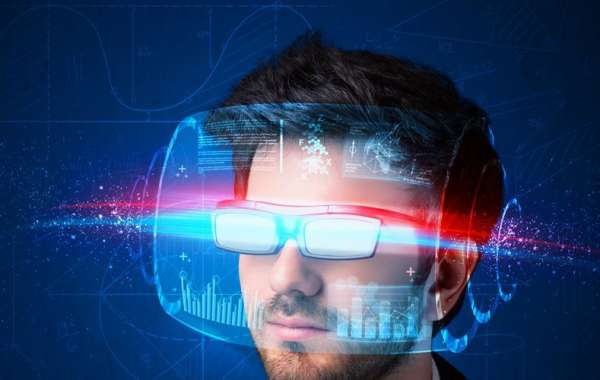Facebook recently rebranded as “Meta“, and it got the world to pay attention in two ways 1) that a future that includes what is called today an extended reality world is likely to become possible and 2) that Facebook’s strategy may not have been completely thought through.
The Metaverse was coined for the first time by American science fiction writer Neal Stephenson in his 1992 novel Snow Crash. Stephenson coined the word Metaverse as a successor to the Internet as a vision of how a virtual reality-based Internet might evolve in the future. Think about it as a multiplayer online game populated by avatars.
Technologists concur that the internet will eventually evolve into the Metaverse, a next major computing platform where advanced Future Tech Apps will emerge and thrive. If the concept can be actualized truly, it is expected to be as transformative to society and industry as mobile devices have been.
The Metaverse is expected to make it harder to delineate offline and online in an extended reality world (where AR and VR come together) and will likely connect to real-world economies. Think about NFTs. This also means that many of these changes could not exist without a version of an “App Store” like environment where physical equipment is also made available digitally.
FutureTech stands for future tech enterprise or solutions provider whose sole focus is to make emerging technology accessible to the masses through the delivery of products and services that can be utilized as innovative capabilities or disruptive technological assets in sectors and industries.
Many of these technology-focused organizations, besides Facebook, would think about themselves as Future Tech players as they combine data, the internet of things, mobile devices, advanced analytics, extended reality, robotics, blockchain among others to automate repetitive tasks, engage customers seamlessly, and develop new products and services we have not seen before.
FutureTech and the climate crisis
While fossil fuel has contributed to the climate crisis, it also has enabled many of us to become more aware of the impact of our behavior on the planet and underserved groups of the population, and so develop approaches, techniques, and technologies to understand the impact of our carbon footprint and address global warming.
Very few green-tech ventures were invited to Cop26 when there are already 7,000 Climate Tech companies that have received over $185 billion in investment over the course of the past few years.
Transportation has raised the most funding over the past two years, followed by energy storage, food tech, renewable energy, and energy efficiency platforms.
Besides the usual autonomous discussions that often take place within the electric driving space, you also need to remember that automakers are also seeking innovation such as solar and hydrogen technology too.
FutureTech and Digital Societies
Digital societies reflect the results of today’s fast-paced modern communities able to use, adopt and integrate information and communication technologies at home, work, schools, recreational activities, including the implication of our earlier Metaverse introduction.
As a whole, society has evolved. Our technological advancements have gotten us to where we are today- with the world at our fingertips. The internet certainly has given us all kinds of opportunities and access to an abundant amount of data, information, insight.
Digital innovation and technological advancements are changing today’s society by giving new opportunities for businesses, governments, and citizens in a wide range of sectors including industries, healthcare, social media, e-services, and data.
FutureTech and the Future of Work
The pandemic has a terrible impact on the world of workers with millions of jobs being destroyed, causing a drop in employment that was 14 times bigger than the one after the financial crisis, just a decade ago.
At the same time, volumes of digital businesses have emerged. Physical outfits had to transition their approach and thinking to future tech enterprises and digital business models which resulted in many of us working from home.
Large and small businesses are seeking new ways to best serve customers, employees, and deliver the top and bottom-line results through the use of future technologies.
FutureTech and Cyber risk
As shared by the Economic Forum unless actions are taken now, the technology we increasingly rely on has the potential to overwhelm the defense of the global security community for many years in the future.
It is no surprise that emerging technologies create hidden, emerging, and systemic risks. In addition to that these risks become more and more digital. It is estimated that $433 billion will collectively be spent on Cybersecurity projects over the next 10 years.
Collective global spending has now reached $145 billion a year and is predicted to have exceeded $1 trillion by end of this year. Incidents and attacks continue to rise, but this is only the tip of a new and growing problem.
Blockchain
Blockchain technology will ultimately be seen as the most important innovation to come out of the cryptocurrency boom and I think will remain an area of sustainable growth for those companies that know what to do with it.
There are an estimated 3,000 ventures that have received $40 Billion in investment focusing on augmenting.
- Cross-border transitions
- Smart contract
- Digital ID
- Supply chains
Final thoughts
Future tech enterprises have a unique opportunity to transform our world. They also have a big burden on their shoulders to do so in the right way to ensure that the considerations we are using as input to shape and build our future are balancing planet, people, and values as key parameters to build future physical and digital societies.
Read More: https://alchemycrew.com/transitioning-to-a-futuretech-world-look/
Also Read:








